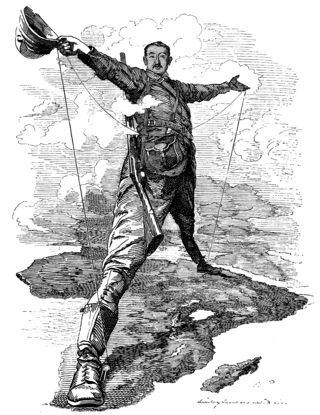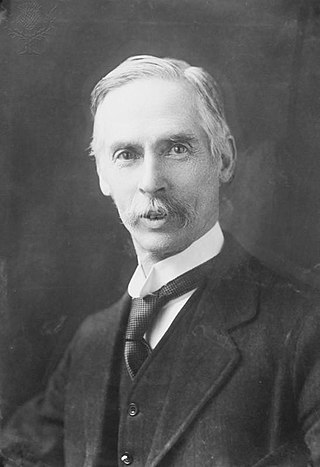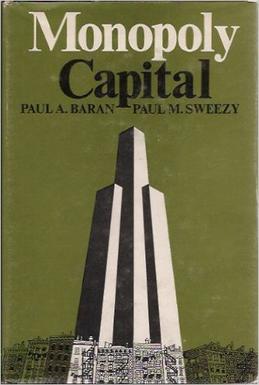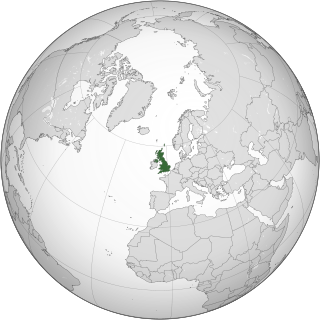
Imperialism is maintaining or extending power over foreign nations, particularly through expansionism, employing both hard power and soft power. Imperialism focuses on establishing or maintaining hegemony and a more or less formal empire. While related to the concepts of colonialism, imperialism is a distinct concept that can apply to other forms of expansion and many forms of government.

In historical contexts, New Imperialism characterizes a period of colonial expansion by European powers, the United States, and Japan during the late 19th and early 20th centuries. The period featured an unprecedented pursuit of overseas territorial acquisitions. At the time, states focused on building their empires with new technological advances and developments, expanding their territory through conquest, and exploiting the resources of the subjugated countries. During the era of New Imperialism, the European powers individually conquered almost all of Africa and parts of Asia. The new wave of imperialism reflected ongoing rivalries among the great powers, the economic desire for new resources and markets, and a "civilizing mission" ethos. Many of the colonies established during this era gained independence during the era of decolonization that followed World War II.

John Atkinson Hobson was an English economist and social scientist. Hobson is best known for his writing on imperialism, which influenced Vladimir Lenin, and his theory of underconsumption.

The Family Compact was a small closed group of men who exercised most of the political, economic and judicial power in Upper Canada from the 1810s to the 1840s. It was the Upper Canadian equivalent of the Château Clique in Lower Canada. It was noted for its conservatism and opposition to democracy.

Paul Marlor Sweezy was a Marxist economist, political activist, publisher, and founding editor of the long-running magazine Monthly Review. He is best remembered for his contributions to economic theory as one of the leading Marxian economists of the second half of the 20th century.
Cobdenism is an economic ideology which perceives international free trade and a non-interventionist foreign policy as the key requirements for prosperity and world peace. It is named after the British statesman and economist Richard Cobden and had its heyday of political influence in the British Empire during the mid-19th century, amidst and after the endeavour to abolish the Corn Laws.

David W. Harvey is a British-American academic best known for Marxist analyses that focus on urban geography as well as the economy more broadly. He is a Distinguished Professor of anthropology and geography at the Graduate Center of the City University of New York (CUNY). Harvey has authored many books and essays that have been prominent in the development of modern geography as a discipline. He is a proponent of the idea of the right to the city.

Imperialism: A Study (1902), by John A. Hobson, is a politico-economic discourse about the negative financial, economic, and moral aspects of imperialism as a nationalistic business enterprise. Hobson argues that capitalist business activity brought about imperialism.

The historical phenomenon of colonization is one that stretches around the globe and across time. Ancient and medieval colonialism was practiced by the Phoenicians, Greeks, Romans, Turks, Han Chinese, and Arabs.

The Panic of 1866 was an international financial downturn that accompanied the failure of Overend, Gurney and Company in London, and the corso forzoso abandonment of the silver standard in Italy.

Antony Gerald Hopkins, is a British historian specialising in the economic history of Africa, European colonialism, and globalisation. He is Emeritus Smuts Professor of Commonwealth History at the University of Cambridge, an Emeritus Fellow of Pembroke College, Cambridge and a fellow of the British Academy.

Monopoly Capital: An Essay on the American Economic and Social Order is a 1966 book by the Marxian economists Paul Sweezy and Paul A. Baran. It was published by Monthly Review Press. It made a major contribution to Marxian theory by shifting attention from the assumption of a competitive economy to the monopolistic economy associated with the giant corporations that dominate the modern accumulation process. Their work played a leading role in the intellectual development of the New Left in the 1960s and 1970s. As a review in the American Economic Review stated, it represented "the first serious attempt to extend Marx’s model of competitive capitalism to the new conditions of monopoly capitalism." It attracted renewed attention following the Great Recession.

The historiography of the British Empire refers to the studies, sources, critical methods and interpretations used by scholars to develop a history of the British Empire. Historians and their ideas are the main focus here; specific lands and historical dates and episodes are covered in the article on the British Empire. Scholars have long studied the Empire, looking at the causes for its formation, its relations to the French and other empires, and the kinds of people who became imperialists or anti-imperialists, together with their mindsets. The history of the breakdown of the Empire has attracted scholars of the histories of the United States, the British Raj, and the African colonies. John Darwin (2013) identifies four imperial goals: colonising, civilising, converting, and commerce.

Ernesto Screpanti is a professor of Political Economy who worked in various universities, like Trento, Florence, Trieste, Parma, New York, Rio de Janeiro, Siena. He did research in the “rethinking Marxism” scientific programme, in the attempt to update Marxist analysis by bringing it in line with the reality of contemporary capitalism, on the one hand, and to liberate Marxism from any residue of Hegelian metaphysics, Kantian ethics and economic determinism, on the other.

Egypt–United Kingdom relations are the diplomatic, economic, and cultural relationships between Egypt and the United Kingdom. Relations are longstanding. They involve politics, defence, trade and education, and especially issues regarding the Suez Canal.

"The Imperialism of Free Trade" is an academic article by John Gallagher and Ronald Robinson first published in The Economic History Review in 1953. It argued that the New Imperialism could be best characterised as a continuation of a longer-term policy begun in the 1850s in which informal empire, based on the principles of free trade, was favoured over formal imperial control unless circumstances made such rule impossible.

Anti-imperialism in political science and international relations is opposition to imperialism or neocolonialism. Anti-imperialist sentiment typically manifests as a political principle in independence struggles against intervention or influence from a global superpower, as well as in opposition to colonial rule. Anti-imperialism can also arise from a specific economic theory, such as in the Leninist interpretation of imperialism, which is derived from Lenin's 1917 work Imperialism, the Highest Stage of Capitalism. People who categorize themselves as anti-imperialists often state that they are opposed to colonialism, colonial empires, hegemony, imperialism and the territorial expansion of a country beyond its established borders.
Theories of imperialism are a range of theoretical approaches to understanding the expansion of capitalism into new areas, the unequal development of different countries, and economic systems that may lead to the dominance of some countries over others. These theories are considered distinct from other uses of the word imperialism which refer to the general tendency for empires throughout history to seek power and territorial expansion. The theory of imperialism is often associated with Marxist economics, but many theories were developed by non-Marxists. Most theories of imperialism, with the notable exception of ultra-imperialism, hold that imperialist exploitation leads to warfare, colonization, and international inequality.

Latin America–United Kingdom relations are the diplomatic, economic and cultural relations between the United Kingdom and the countries of Latin America.

British foreign policy in the Middle East has involved multiple considerations, particularly over the last two and a half centuries. These included maintaining access to British India, blocking Russian or French threats to that access, protecting the Suez Canal, supporting the declining Ottoman Empire against Russian threats, guaranteeing an oil supply after 1900 from Middle East fields, protecting Egypt and other possessions in the Middle East, and enforcing Britain's naval role in the Mediterranean. The timeframe of major concern stretches from the 1770s when the Russian Empire began to dominate the Black Sea, down to the Suez Crisis of the mid-20th century and involvement in the Iraq War in the early 21st. These policies are an integral part of the history of the foreign relations of the United Kingdom.
















